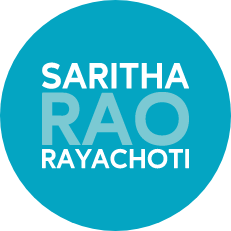“I suppose I have brought the Goa rain to Chennai. It happened during the Delhi launch too – there was a hailstorm!” says Maria Aurora Couto, who is in Chennai for the release of her book, ‘Goa: A daughters story’.
With the sound of unseasonal, yet welcome rain in the background, Mrs. Couto goes on to elaborate on her book. “What does it mean to be a Goan? This was the question that intrigued me for many years. This was the question I have tried to answer for myself as well as the readers of my book.” Touted as innovative in a form that’s part memoir, part study of the social and cultural history of Goa, the book according to Mrs. Couto, is an attempt to understand and unravel the complexity of the Goan identity.
“Goa is a deeply spiritual land. We have a rich inheritance of many religions that have cross-fertilized the soil– there was the Bhakti tradition, Islam, Christianity, Jainism as well as Buddhism. As for society, take the Gavkari system, for instance. Land was jointly held by all the villagers. Women and men are considered equal under law and the moment a woman is married, she has claim to half her husband’s property.”
According to Ms. Couto, “Goa is more than just about the 450 years of colonisation by the Portuguese. Most people are unaware that before the Portuguese, we were also ruled by the Kadambas, the Rashtrakutas and the Vijayanagar Kingdom.”
“The Portuguese did have a strong influence not just because of the length of time that they were here, but also because the territory was small. Hence, the influence was also intensive. Moreover, in 19th Century Portugal, under the electoral system, two Members of Parliament were elected from Goa. The Goans were Portuguese citizens and considered so even until the last century.”she revealed.
So much so, that one discovers Konkani can be written in Roman, Urdu, Devnagari, Malayalam and Kannada scripts. Mrs. Couto, in fact, writes it in the Roman script.
Ms. Couto reminisced, “While the book was written in 3 years, starting from the year 2000, the process of exploration has taken over thirty years. Right at the beginning, it was Bakibab Borkar and Pandurang Pissurlekar, who channelised my many questions and goaded me to tell the story. This book has been a product of friendships and trust.”
One further discovers that she is not a mere visitor to Chennai, having lived here for seven years from 1994 and having life-long friends who belong to this city. “In fact, I started writing the book when I lived here, in Chennai, in 2000. The city is a unique blend of the modern mind with a firm footing in tradition. If it weren’t for my friends in Chennai, who have drawn me into every ceremony and celebration in their homes, I would not have known much about the city and its people.”
Maria Aurora Couto’s book, Goa:A daughter’s story, is available in bookshops in Chennai.
Pic courtesy Third Eye
An edited version of this article was published in Madras Plus on May 6, 2004 .
From Chennai to Goa – An interview with Maria Couto
Madras Plus, May 06, 2004


